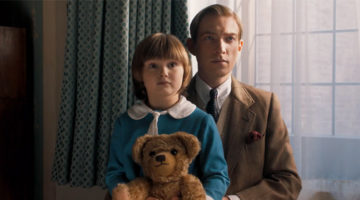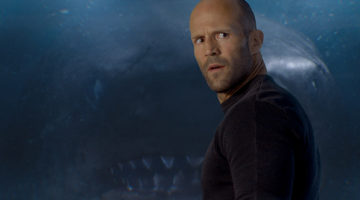Movie Review: The Amazing Spider-man
Whether or not a movie is actually necessary is a discussion that is no longer worth taking place. It’s not that The Amazing Spider-Man¸ a reboot, and more accurately a remake of a film franchise that began just 10 years ago, is unnecessary, which it is, it’s that so much of the movie is so familiar that when something new and exciting happens, it’s an insult to the audience that the whole movie isn’t new.
There is nothing particularly awful about the latest installment in superhero movies, this one starring Andrew Garfield as the awkward high-schooler-turned-web-slinger (there is nothing particularly great about it either), but the fact that so much of it was done so recently is unfortunate.
Garfield is refreshing, offering a more introspective and thoughtful Peter Parker than Tobey MacGuire’s boyish, awed Spider-Man. Emma Stone is wonderful as always, charming and smart in every single scene, never becoming the damsel in distress like Kirsten Dunst. She plays Gwen Stacy, a gorgeous and smart, and daughter of a police Captain played with just the right amount of stubbornness by Denis Leary.
Martin Sheen and Sally Field play Parker’s uncle and aunt, both incredibly talented and winning in their own right, though not nearly as young as they once were. Rounding out a genuinely engaging and fun cast of which to root for or against is Rhys Ifans, playing the brilliant and eventually deranged Dr. Curt Connor who becomes the fantastic villain Lizard.
Unfortunately the cast is playing out a story that is too familiar for too long. Parker happens upon a place he shouldn’t be, he is bit by a spider, he is indirectly the cause of the death of his uncle Ben. Not only is director Marc Webb rehashing the same origin story from the Sam Raimi version, he is doing it with all too common movie tropes. Parker is picked on at school in typical movie fashion—he thinks a cheerleader is asking him out when she’s really not, a couple is making out by his locker, and a big blonde jock can’t help but pick on him.
When new moments do arrive, there is much to get excited about, and when they are done, instead of revealing in such awe-inspiring swinging and fighting scenes, we have to look back and think about what could have been. Webb is burdened with having to introduce the back-story, taking far too long to get there, and bumbling along the way. Still, he knows how to make the great shots look amazing, as the moments that make Spider-Man great—jumping, climbing, crawling, and swinging—are done with aplomb. IMAX and 3-D certainly enhance all those moments, and Webb knows to give them away in scads.
Refreshing too are the fight scenes, coherent and well-choreographed, but once again they take simply too long to get to. It’s a bit surprising that a director that helmed the hipster rom-com (500) Days of Summer, returns to a movie that can have moments of intense emotion, but completely glosses over. Parker seems none the least hung up on the death of his uncle, the situation around which he helped create. There is another moment late in the movie where a Parker makes a promise to an ailing comrade, only to coyly break it just a couple scenes later.
With so much potential is sadly wasted, with a handful of truly emotional and intense scenes simply too few and far between. Over an hour into the film (it feels like two hours), Lizard lays waste to those in his path on a New York City bridge, with Spider-Man on his trail, entering the picture in dramatic fashion.
We shouldn’t have to wait. The few new plot points—the search for Parker’s parents, Spider-Man labeled as a vigilante-are not enough to save a movie that will almost surely have far more interesting and exciting sequels. A final scene is great to watch, including a prelude where Denis Leary finally confronts Parker, but by that point you just may be too bored or annoyed to care.
[star v=25]






